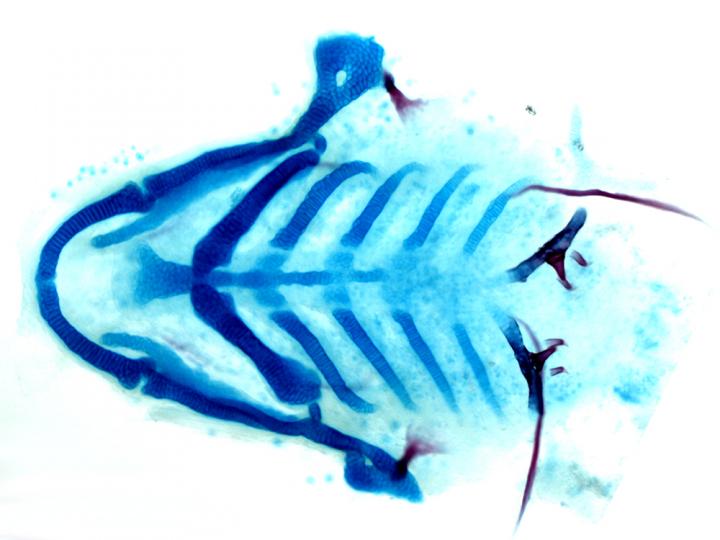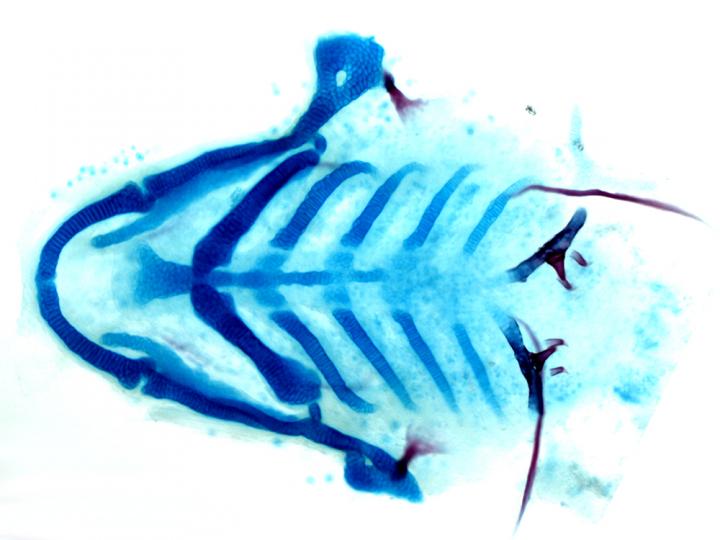
Credit: Image by Pengfei Xu/Crump Lab/USC Stem Cell
In the developing face, how do stem cells know whether to become cartilage, bones or teeth? To begin to answer this question, scientists from the USC Stem Cell laboratory of Gage Crump tested the role of a key family of genes, called "Forkhead-domain transcription factors," or Fox. Their findings appear in the journal Development.
While mutations in the Fox genes can cause diseases ranging from cancer to language disorders, postdoc Pengfei Xu and her collaborators focused on how these genes affect facial development.
"While examination of Fox genes in the mammalian face reveals they are required for bone and palate formation, whether Fox genes broadly control regional facial skeletal fates, as well as their mechanisms of action, remains unclear," said Xu.
To observe this, the team created mutant zebrafish that lacked different types of Fox–specifically, Fox-C genes or Fox-F genes. They found that fish lacking Fox-C failed to form cartilage in the upper face. Fish lacking Fox-F genes had problems developing their jaws, cartilage in the middle of their faces and teeth.
Further experiments revealed that Fox-C and Fox-F have a role in helping another important gene, Sox9, activate a slew of additional genes that promote cartilage development in the embryo.
Other laboratories have noted similar effects in mice lacking Fox genes. These findings suggest that the Fox genes play a role in the facial development of not only zebrafish and mice, but also many other vertebrate species, including humans.
"Transcription factors like Sox9 play roles in many different organs in the body," said Crump, who is a professor of stem cell biology and regenerative medicine at USC. "This tour-de-force genetic study shows how a family of Fox factors direct cells to form only cartilage and teeth and not other cell types. This may help in strategies toward directing stem cells to form cartilage and teeth for future regenerative medicine applications."
###
Additional co-authors include Bartosz Balczerski, Amanda Ciozda and Kristin Louie from USC, and Veronika Oralova and Ann Huysseune from Ghent University in Belgium.
The research was funded by the National Institutes of Health (R01-DE018405 and R35-DE027550).
Media Contact
Cristy Lytal
[email protected]
@keckmedusc
Original Source
https://stemcell.keck.usc.edu/a-fox-code-for-the-face/





